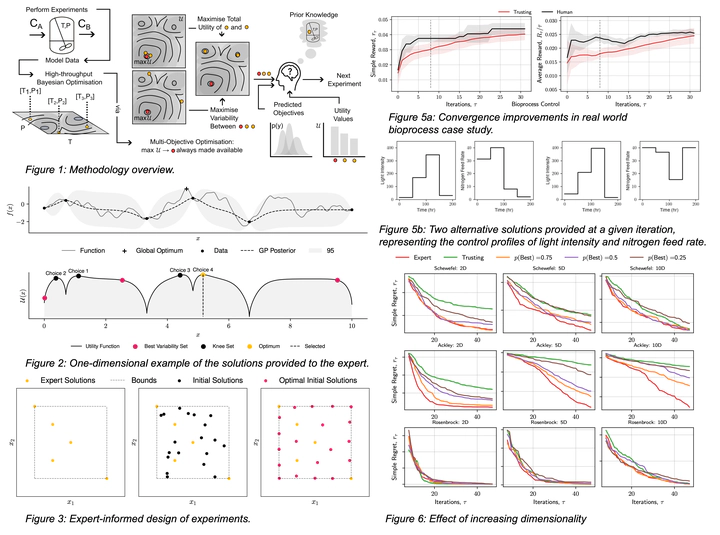Bayesian Optimization

Bayesian optimisation has been successfully applied in a number of complex domains including engineering systems where derivatives are often not available, such as those that involve simulation or propriety software. By removing the human from decision-making processes in favour of maximising statistical quantities such as expected improvement, complex functions can be optimised in an efficient number of samples. However, these engineering systems are often engaged with by domain experts such as engineers or chemists, and as such the behaviour of the underlying function cannot be considered completely unknown a-priori. Therefore, there exists significant scope to take advantage of the benefits of Bayesian optimisation in optimising expensive derivative-free problems, whilst enabling domain experts to inform the decision-making process, putting the human back into the loop.